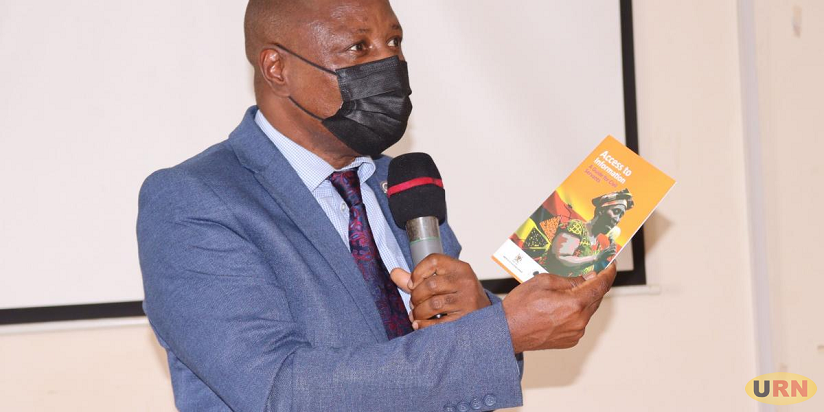Minister Godfrey Kabyanga
The government has unveiled a new Access to Information Guide to enable civil servants to meet their legal obligations of providing information to the public and interested parties as required by law.
The Civil Servants Guide, developed by Twaweza Uganda and Africa Freedom of Information Centre-AFIC in partnership with the Ministry of ICT and National Guidance, aims to unlock the challenges to access to information for all Ugandans to promote inclusiveness, transparency, accountability, and good governance.
During the launch which took place in Kamuli District, the State Minister for National Guidance, Godfrey Kabyanga, noted that although the government is implementing a lot of programmes, very few people know about them because public officers withhold information, leaving room for speculation.
Uganda was one of the first countries to enact the Access to Information Act in 2005 and later set regulations in 2011. However, the implementation of the same has had challenges.
Violet Alinda, the Twaweza-Uganda Country Lead and Director of Voice and Participation, notes that with the legal regime in place, several other steps have been taken to guarantee access to information in Uganda. The measures include the establishment of the ICT ministry, opening up different platforms of information disclosure including information request forms, public notices boards, and newsletters among others. However, she adds, all this has failed to yield results.
“…Several studies conducted in the previous years have proven that although people are requesting information, the majority are unsuccessful. This signals to a missing link ” said Alinda quoting a 2019 report by the Africa Freedom of Information Centre that found out that only nine per cent of the 4,059 known information requests, were partially successful while over 81 per cent of requests had not received a reply after the office 21-day time limit.
Marie Nanyanzi, the senior programmes officer at Twaweza, says that through the Sauti za Wananchi initiative, they collected new data on citizens’ experiences and perspectives on access to information from 1,500 respondents between October and December 2020 which further indicated that a limited number of citizens could get access to information.
“Eight out of 10 citizens sought information from at least one public institution in the previous three months. However, seven out of 10 of them noted that it was not easy to access information, especially, on critical matters including budgets, by-laws, and development projects in their area,” Nanyazi noted.
Nanyanzi added that whereas civil servants agree that in principle, citizens have a right to access government-held information, many reported that they have not been given training or guidance on access to information with some of them not aware that they are legally required to release information.
“With these facts, the act has thus far had minimal impact on civil servants’ process of disclosing information and in the end affecting the citizens who don’t get the needed information,” she added.
Bo Rosenfelt Clausen, the Senior Programme Officer of the Africa Freedom of information Centre, notes that with the civil servants’ guide out, public officers will understand how they can handle information requests from the citizens, and in the end, the latter will understand how government programs are implemented in their districts and on the national level.
Meanwhile, Minister Kabyanga added that with the guide to access to the information given out to public servants, the government has embarked on formulating a communication policy and strategy to streamline access to information among public officers and then the residents.
He, however, urged public servants to maintain an open-door policy to receive information requests and reply to them in time as one of the means of creating a direct link with the public and proactively disseminating information through available channels to deny interested parties room for speculating on what the government is doing.
Kamuli LCV chairperson Maxwell Charles Mugude, also noted that access to information is a big catalyst to development asking the government to always offer refreshers courses to public officers on information access, dissemination and handling.
–URN





